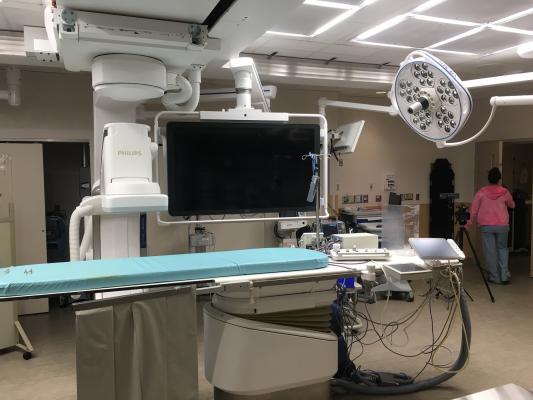
September 30, 2019 – Data from the EVOLVE Short DAPT study found that shortened three-month dual antiplatelet therapy (DAPT) did not increase myocardial infarction (MI) or stent thrombosis (ST) in high bleeding risk (HBR) patients treated with a contemporary drug-eluting stent.
Findings were reported at the 31st annual Transcatheter Cardiovascular Therapeutics (TCT) scientific symposium, Sept. 25-29 in San Francisco, sponsored by the Cardiovascular Research Foundation (CRF).
The study utilized a thin-strut platinum-chromium stent (Synergy) that elutes everolimus from an ultrathin abluminal layer of a bioabsorbable polymer. Drug release and polymer degradation are complete within fours months of implantation. These design elements may facilitate endothelialization and enable shorter duration DAPT than used in pivotal approval trials.
The study enrolled 2,009 HBR patients (age ≥75 years with bleeding risk outweighing benefit of DAPT greater than three months, chronic anticoagulation, major bleeding within 12 months, history of stroke, thrombocytopenia, or renal insufficiency/failure) at 110 sites around the world. Patients with acute MI or complex lesions were excluded. After undergoing PCI, patients were required to take DAPT (aspirin+P2Y12 inhibitor) for three months, except those on chronic anticoagulant in whom aspirin was optional. Event-free patients (stroke, MI, revascularization, ST) who discontinued the P2Y12 inhibitor at three months, but continued aspirin between three and 15 months, were included in the primary analysis.
Clinical follow-up at three months was 95.2 percent (n=1,912). Of those, 77.7 percent (n=1,487) were eligible to discontinue the P2Y12 inhibitor. The analysis population for the secondary endpoint of BARC 2,3 or 5 bleeding was 1,032 due to 455 patients being excluded because they were on anticoagulation.
One co-primary endpoint assessed death or myocardial infarction between three and 15-months post- procedure, compared for non-inferiority to a propensity-adjusted historical limus-eluting stent control group receiving 12-month DAPT. The event rate for patients who received three-month DAPT (n=1,454) was 5.6 percent vs. 5.7 percent in the historical control group receiving 12-month DAPT (n=1,493, non-inferiority p=0.0016). The second co-primary endpoint of ARC definite/probable ST in patients with three-month DAPT between three and 15 months was also met with an incidence of 0.3 percent compared to a 1 percent performance goal (non-inferiority p<0.0001). The secondary endpoint was the rate of BARC 2/3/5 bleeding in patients compared for superiority to the propensity-adjusted historical control. The rate of BARC 2/3/5 bleeding in patients receiving three-month DAPT (n=974) was 6.26 percent compared to 4.17 percent in the 12-month DAPT group (n=947) (2.10%; 95 percent CI -0.10-4.29; p=0.98).
“These data prospectively demonstrate a low rate of adverse events for patients who are at high risk for bleeding and who then stop DAPT at three months,” said lead investigator Ajay J. Kirtane, M.D., SM. Kirtane is associate professor of medicine, Columbia University Irving Medical Center, chief academic officer, Center for Interventional Vascular Therapy and director, cardiac catheterization laboratories, NewYork-Presbyterian/Columbia University Irving Medical Center. “This is critically important information because the required duration of DAPT following implantation of current-generation drug- eluting stent platforms was previously unknown. These data better inform physicians on how best to tailor the recommended duration of DAPT to the bleeding risk of the patients they treat.”
Watch the VIDEO: What Went Wrong With the Absorb Stent?, an interview with Kirtane at TCT 2017.
The EVOLVE Short DAPT study was funded by Boston Scientific Corp. Kirtane disclosed institutional funding to Columbia University and/or the Cardiovascular Research Foundation from Medtronic, Boston Scientific, Abbott Vascular, Abiomed, CSI, CathWorks, Siemens, Philips and ReCor Medical.
More late-breaking coverage from TCT 2019
For more information: www.crf.org/tct


 August 28, 2023
August 28, 2023 









